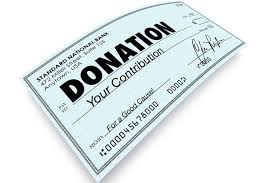Charitable Contributions Require Documentation
Although charitable contributions can amount to a significant tax savings, they can also have the negative affect of flagging a return from audit when they are claimed in excess or not reported according to preset IRS guidelines. A case in point is that of Kunkel versus United States Tax Commissioner. In this 2011 United States Tax Court case, the court disallowed over $37,000 in noncash contributions due to lack of substantiation. While the Kunkels maintained that the value of each donation was less than $250, the court questioned the total amount of the contributions. They pointed out that the total donation amount could have only been achieved by making almost 100 trips to various donation sites. In addition, the Kunkels had no dated receipts from any of the receiving charities giving either a value or description of the property being donated.
In order to avoid a situation such as the one described above, it is important to follow the guidelines set by the Internal Revenue Service for reporting charitable contributions. According to these guidelines, increasingly strict documentation requirements are imposed on charitable donations above or below the following preset thresholds:
- Contributions of less than $250
Contributions of less than $250 require 1) the name and location of the charitable organization to which the donation is being made, 2) the date the donation is made and 3) a description of the property being donated. Although it is advisable to get a receipt from the organization to which the donation is being made, this is not required.
- Contributions in excess of $250
In addition to the documentation required for contributions of less than $250, those in excess of $250 must have a written receipt from the charitable organization to which the contribution is made. In addition to a description of the donated property, the receipt must include a good faith estimate of the property’s value as well as a statement indicating whether any goods or services were given in exchange for the contribution.
- Contributions in excess of $500
Charitable donations in excess of $500 require 1) a specific description of the property being donated, 2) the date the property was acquired, 3) the cost basis of the property, 4) the fair market value of the property at the time the donation is made and 5) a statement of the method used to calculate fair market value.
- Contributions in excess of $5000
In addition to all of the documentation required for donations in excess of $500, charitable contributions in excess of $5000 require a qualified appraisal.
With the end of the calendar year fast aproaching, now is as good a time as any to review the IRS guidelines for documenting charitable contributions. Although the IRS sometimes allows charitable deductions even when the reporting taxpayer lacks the required documentation, there is no good reason to take a chance on this being the case. It is better to be safe than sorry! Charitable contributions can amount to a significant savings of tax dollars but proper reporting is essential.
If you have tax questions or a tax debt you are unable to pay, our tax settlement professionals are happy to discuss your tax resolution options free of charge. For more information about our services, visit us today at www.professionaltaxresolution.com or call us at 877.889.6527. With over 16 years in the business of resolving tax debt, we have a thorough understanding of tax law together with the experience to know which settlement option will be the best fit for your specific set of circumstances.

